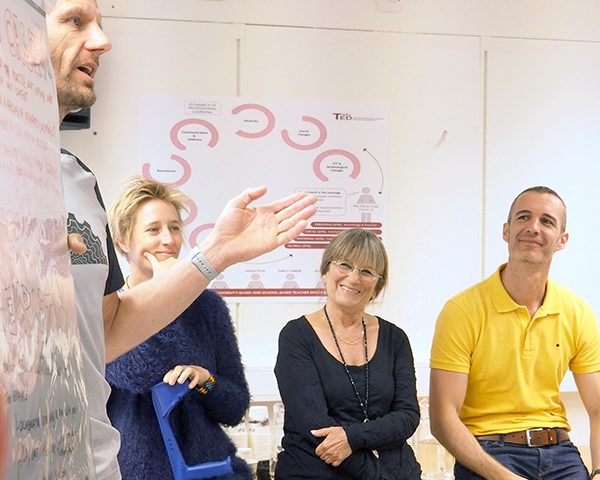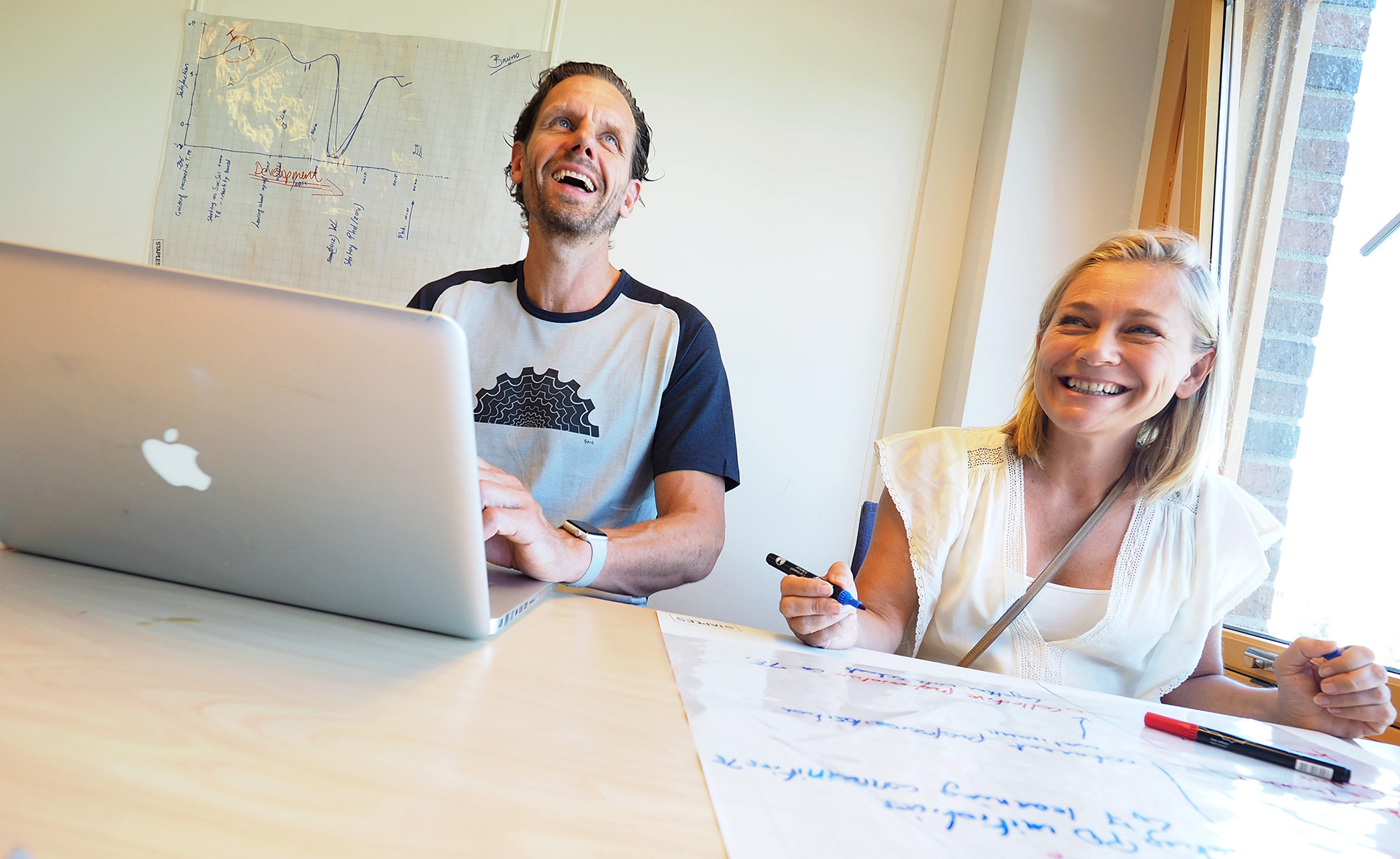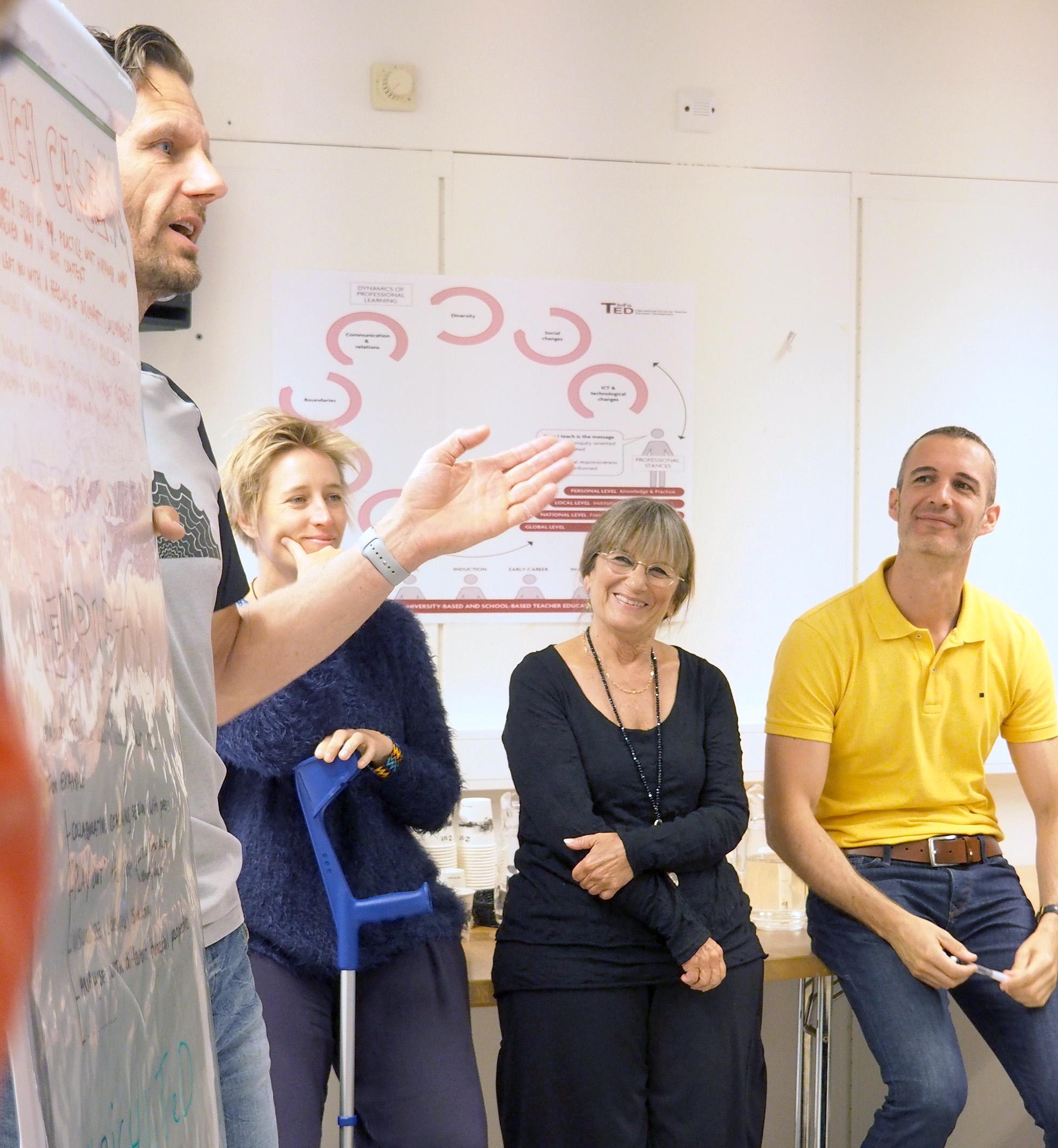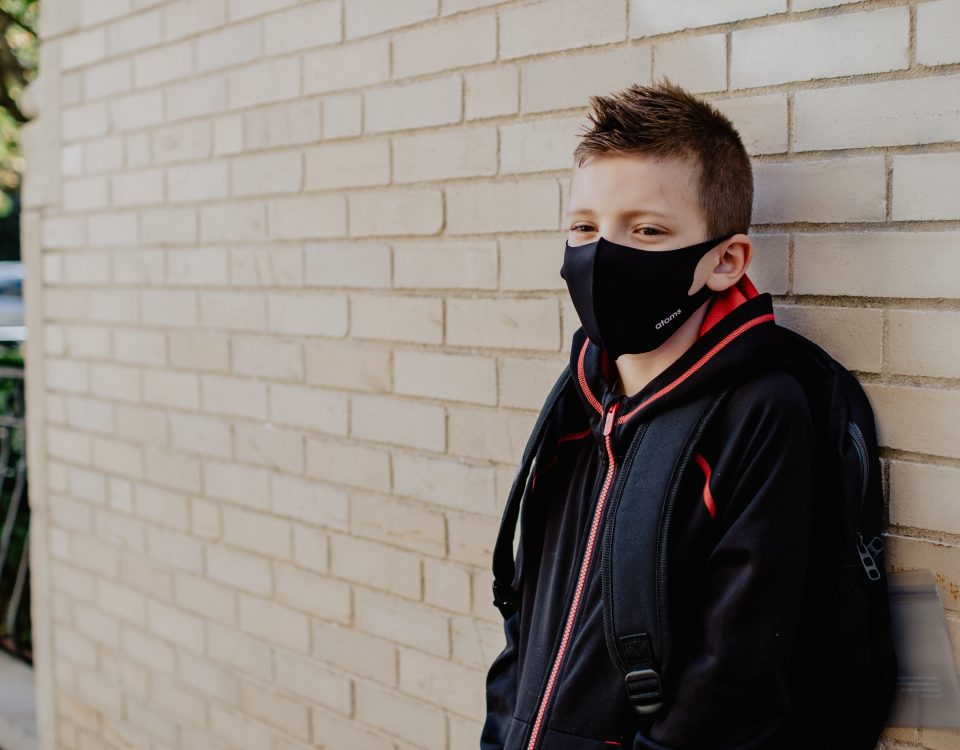
Explicating students’ beliefs about good history teaching
October 20, 2018
The Evidence-Based Teaching Survey
January 4, 2019‘Voice Over Teaching’ for Teacher Educators

As a teacher educator, teaching in an institute, I was searching for ways to have more impact on student teachers’ learning. One pedagogical intervention caught my attention and seemed promising: explicit modelling (Lunenberg, Korthagen, & Swennen, 2007). A few years ago, I started experimenting and reading about it. This summer, in Trondheim Norway, visiting the Info-TED Summer Academy, I had the opportunity to demonstrate my version of explicit modelling, which I have called ‘voice over teaching’.
I read two interesting studies about modelling. One was written by Loughran (1995) who started to verbalise his thoughts about his pedagogy and pedagogical reasoning in class, in an attempt to give prospective teachers access to his thinking. Loughran called this reflection in action “thinking aloud”. Another article was written by Wood & Geddis (1999). They studied a lecture of an experienced teacher educator which used meta-commentary along with modelling of effective teaching behaviour, which they called self-conscious narrative. It turned out that giving meta-commentary helped prospective teachers to overcome the bridge between theory and practice.
However, three distinct problems arose when I started thinking aloud and started using meta-commentary. A first problem was that I tended to talk mainly about rational interventions. But then I realised that many of my pedagogical decisions as teacher educator are often made in a split second and based on intuition or emotion.
Second, when thinking aloud and using meta-commentary I found myself sharing the outcome of a thinking process. I ended up lecturing about a specific dilemma, and discussed my thoughts without presenting a sense of tension while solving my dilemma (Berry, 2008). A third problem followed from the second. Because I was teaching and sharing the outcome of my rational reflection, I ended up lecturing two subjects: the content of the lesson and subsequently the pedagogy I used. I filled most of my lesson time lecturing without interaction with my student teachers.
 To overcome these problems I started practising my reflection skills. I trained myself in becoming more aware of my feelings, thoughts and ambitions while teaching.
To overcome these problems I started practising my reflection skills. I trained myself in becoming more aware of my feelings, thoughts and ambitions while teaching.
And after some time I was able to discuss my discomfort and tensions on the spot. For example, I find humor in my lessons important. I have used my own experiences as a beginning teacher to illustrate student teachers the difficulties with classroom management. And we laughed about (only one of the few, of course) mistakes I made
...But by doing so also put my authority as a teacher at risk.
This became a good opportunity for reflection-in-action. I revealed my feelings and insecurities and we discussed the dilemma between self-disclosure and maintaining authority as a teacher.
The effects were twofold. First, my students showed more engagement and were better able to establish a link between theory and practice. Second, confronted with a pedagogical dilemma, the students and I decided together how to continue the lesson.
To explain this kind of interventions to my colleagues, I have started talking about ‘voice over teaching'. I describe ‘voice over teaching’ as the in-the-here-and-now 'subtitling' of pedagogical actions of a teacher educator. By explicating feelings, thoughts and wishes during lessons, with the aim to expose the tensions teachers are struggling with, student teachers get the opportunity to see the complexity of teaching. Voice-over teaching is a form of explicit reflection-in-action that teacher educators can use as an intervention.
You are invited to try Voice Over Teaching yourself and please share your experiences.
References
Berry, A. (2008). Tensions as a Framework for Learning About Practice in Teacher Education. In Tensions In Teaching About Teaching (pp. 31-43). Springer, Dordrecht.
Loughran, J. (1995). Practising what I preach: Modelling reflective practice to student teachers. Research in Science Education, 25(4), 431-451.
Lunenberg, M., Korthagen, F., & Swennen, A. (2007). The Teacher Educator as a Role Model. Teaching and Teacher Education: An International Journal of Research and Studies, 23(5), 586–601.
Wood, E., & Geddis, A. N. (1999). Self-conscious narrative and teacher education: Representing practice in professional course work. Teaching and Teacher Education, 15(1), 107–119.
Bruno Oldeboom
Bruno Oldeboom is currently a PhD candidate at the Open University. In his doctoral research, he focuses on the ways Dutch teacher education is addressing classroom management. He is also a teacher educator at Windesheim University of applied sciences where he teaches general subjects related to pedagogy, such as group dynamics. And he trains teacher educators about the pedagogy of learning to teach.
Twitter: @boldeboom
Blog: https://boldeboom.wordpress.com (in Dutch)






